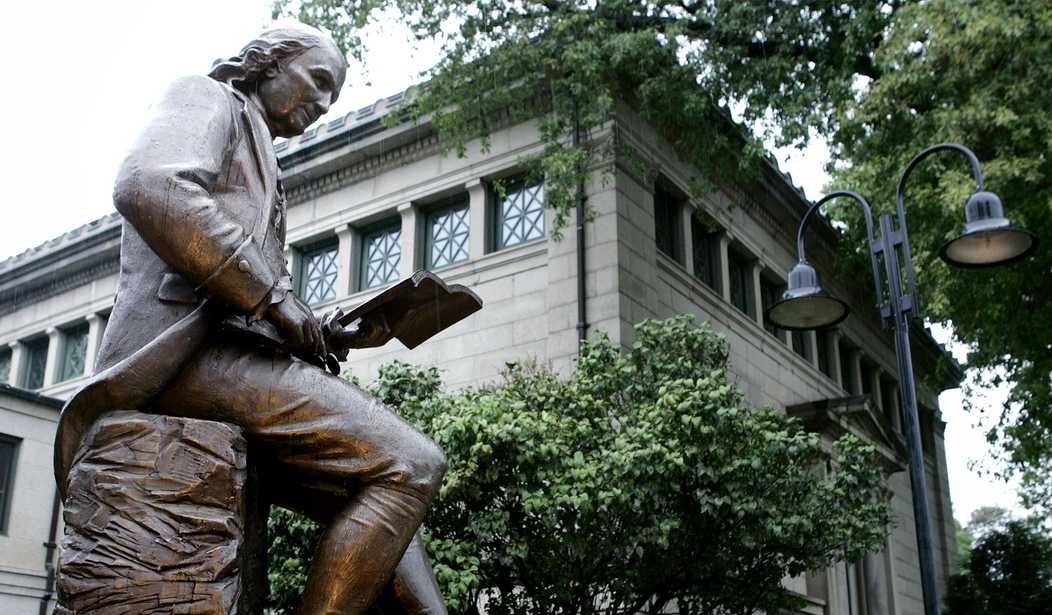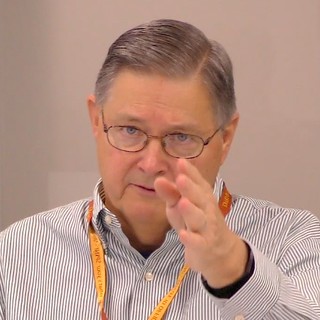There are approximately 12,000 congressional aides working on Capitol Hill for individual senators, representatives, committees, and agencies. They are rarely seen in public except during televised hearings where they typically line the wall behind the lawmakers.
But don't assume that because they are mostly invisible to the American public these congressional aides are insignificant. On the contrary, they are among the most consequential groups in the nation's capital because they do most of the daily grind work of the legislative process.
That grind routinely includes long hours, low pay, and little job security in return for laying the groundwork for negotiating deals, researching and writing proposed legislation, managing media access to their bosses, and advising them on how to vote on legislation before Congress.
In short, congressional aides are an unseen but uniquely powerful and influential part of the First Branch of the federal government. They are smart, highly educated, skilled communicators, and ambitious.
It's no surprise then that, according to a search of data compiled by Legistorm, roughly one of every 12 congressional aides today is a graduate of either an undergraduate or graduate program offered by one of the Ivy League colleges.
Even so, or more likely, precisely because of that fact, ask a random sample of them and most congressional aides would be at a loss to identify the speaker of the following words spoken by one of the most prominent men of the Founders:
Can the liberties of a nation be thought secure when we have removed their only firm basis, a conviction in the minds of the people that these liberties are the gift of God?
Or the man who spoke these words:
I have lived, sir, for a long time and the longer I live, the more convincing proofs I see of this truth — that God governs in the affairs of men. And if a sparrow cannot fall to the ground without His notice, is it probable that an empire can rise without His aid?
We have been assured, sir, in the sacred writings, that 'except the Lord build the house, they labor in vain that build it.' I firmly believe this; and I also believe that without His concurring aid, we shall succeed in this political building no better than the builders of Babel.
To be fair, it is also likely that a random sample of the American public would for the most part be unable to identify the fact that the first quote above was spoken by Thomas Jefferson, author of the Declaration of Independence and third President of the United States, in his delightful "Notes on the State of Virginia."
Similarly, few of the aides or members of the public would recognize the second quotation as having been uttered by Benjamin Franklin at the opening of the Constitutional Convention in Philadelphia in 1787.
The sad reality is that America's elite universities and public education systems long ago stopped teaching our children that the Christian faith was a crucially important factor, though not the only one, in bringing about the American Revolution and in the creation of the U.S. Constitution.
"Hold on there now, Tapscott, weren't Jefferson and Franklin both well-known Deists, not Christians," you may well be asking, and you would be correct. Neither of these esteemed members of the Founders was a professing follower of Jesus Christ, the central figure of the Christian faith.
But note how both men in the above quotes accommodate themselves in their expression of two of the most fundamental tenets of the Christian understanding of the divine source of all individual rights and the supervening role of the sovereign God in the political affairs of men.
The historical reality is that Jefferson, Franklin, and a few others among the signers of the Declaration and the delegates to the Constitutional Convention were a distinct minority among an amazingly talented, thoughtful, practical, and worshipful gathering of men, most of whom saw the world and themselves through the Christian faith.
There is a wonderful book of 1,000-plus pages written more than a century ago by historian and pastor Benjamin F. Morris entitled "The Christian Life and Character of the Civil Institutions of the United States."
This work is the Magnum Opus of documentation that the Founders consciously saw in America as not a "Christian theocracy" but rather a nation of Christians who in their minds, hearts, and conduct lived and breathed their faith.
The founder of that faith was the first man known in all history to have declared that we should all "render unto Caesar that which is Caesar's and unto God the things that are God's." Understand that principle and you begin to grasp the defining background to Jefferson's majestic Preamble to the Declaration of Independence (emphasis added):
We hold these truths to be self-evident, that all men are created equal, that they are endowed by their Creator with certain unalienable rights, that among these are Life, Liberty and the Pursuit of happiness.
Tomorrow in this space for Part 2, we'll consume a rich helping of the evidence that Mr. Morris marshaled so long ago, and Thursday's Part 3 will be a look at a new, modest effort to restore this historical memory among congressional aides. Stay tuned!










Join the conversation as a VIP Member